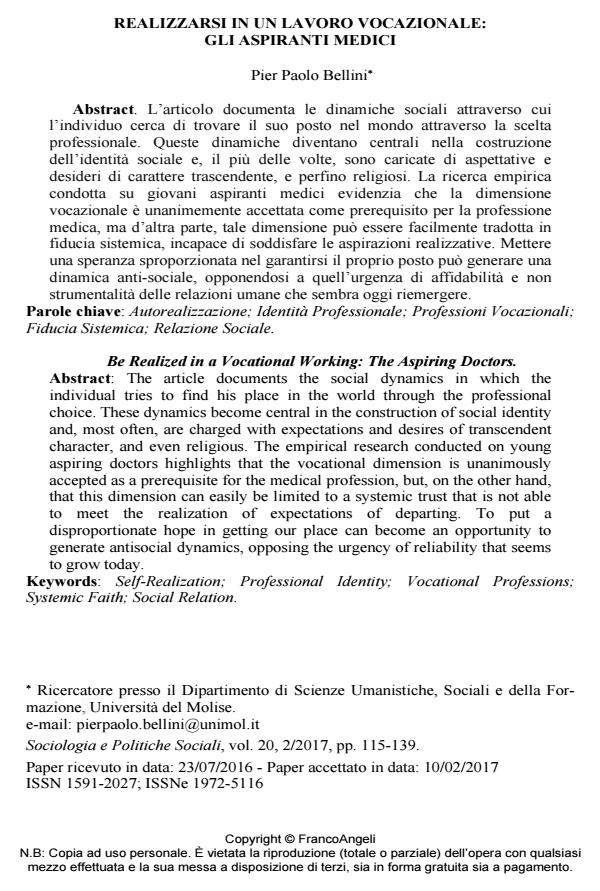Be Realized in a Vocational Working: The Aspiring Doctors.
Journal title SOCIOLOGIA E POLITICHE SOCIALI
Author/s Pier Paolo Bellini
Publishing Year 2017 Issue 2017/2
Language Italian Pages 25 P. 115-139 File size 277 KB
DOI 10.3280/SP2017-002007
DOI is like a bar code for intellectual property: to have more infomation
click here
Below, you can see the article first page
If you want to buy this article in PDF format, you can do it, following the instructions to buy download credits

FrancoAngeli is member of Publishers International Linking Association, Inc (PILA), a not-for-profit association which run the CrossRef service enabling links to and from online scholarly content.
The article documents the social dynamics in which the individual tries to find his place in the world through the professional choice. These dynamics become central in the construction of social identity and, most often, are charged with expectations and desires of transcendent character, and even religious. The empirical research conducted on young aspiring doctors highlights that the vocational dimension is unanimously accepted as a prerequisite for the medical profession, but, on the other hand, that this dimension can easily be limited to a systemic trust that is not able to meet the realization of expectations of departing. To put a disproportionate hope in getting our place can become an opportunity to generate antisocial dynamics, opposing the urgency of reliability that seems to grow today.
Keywords: Self-Realization; Professional Identity; Vocational Professions; Systemic Faith; Social Relation.
Pier Paolo Bellini, Realizzarsi in un lavoro vocazionale: gli aspiranti medici in "SOCIOLOGIA E POLITICHE SOCIALI" 2/2017, pp 115-139, DOI: 10.3280/SP2017-002007